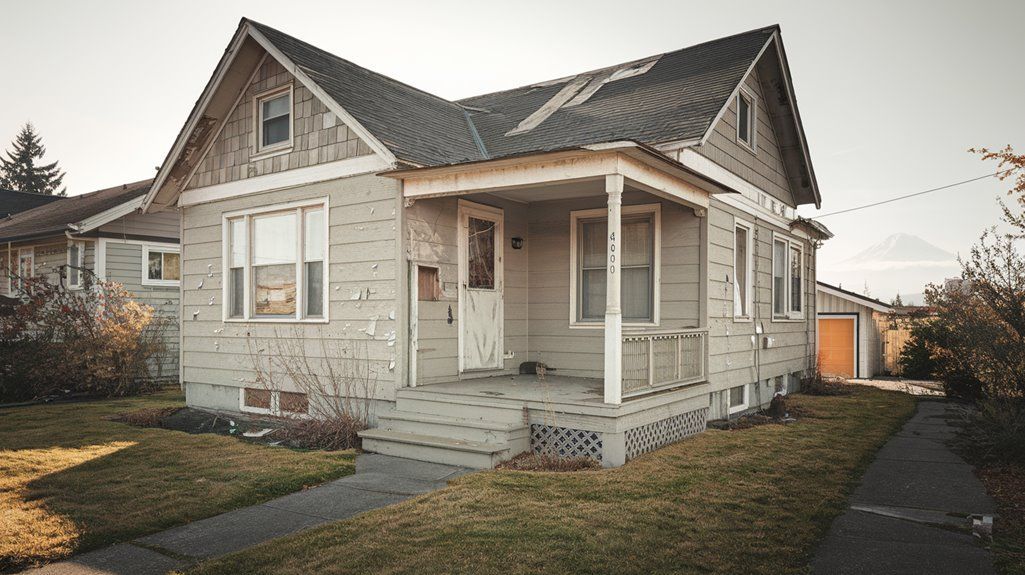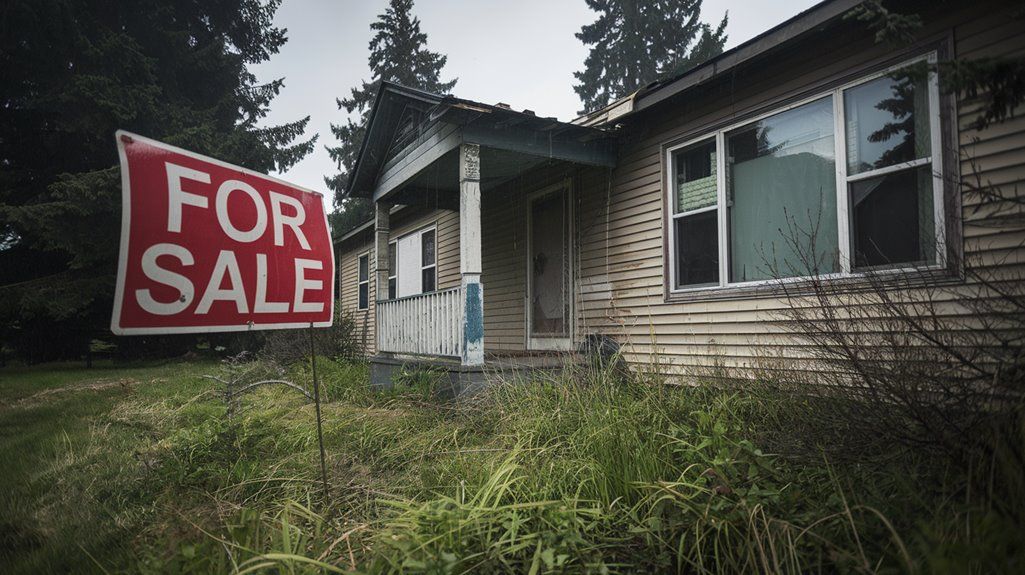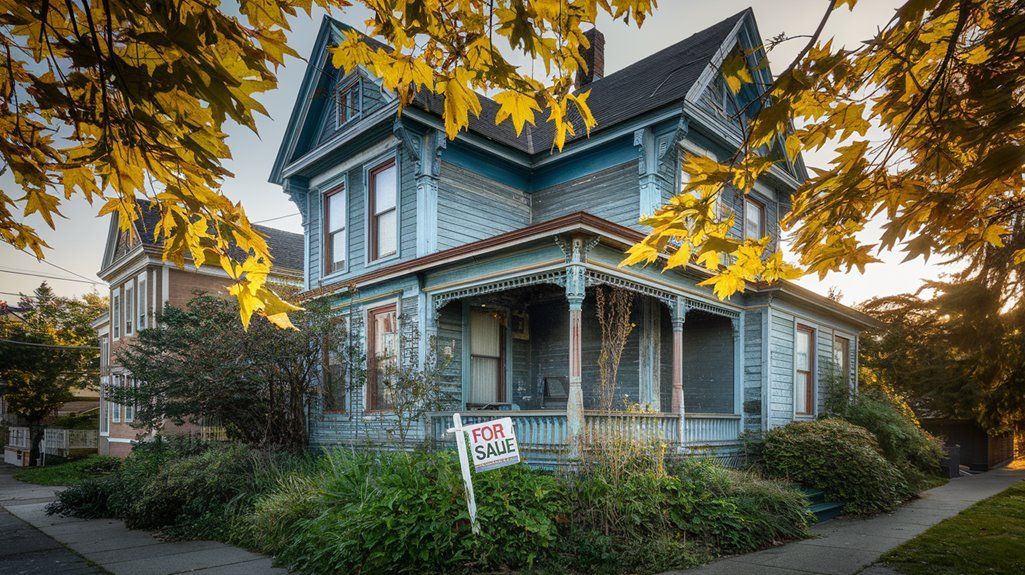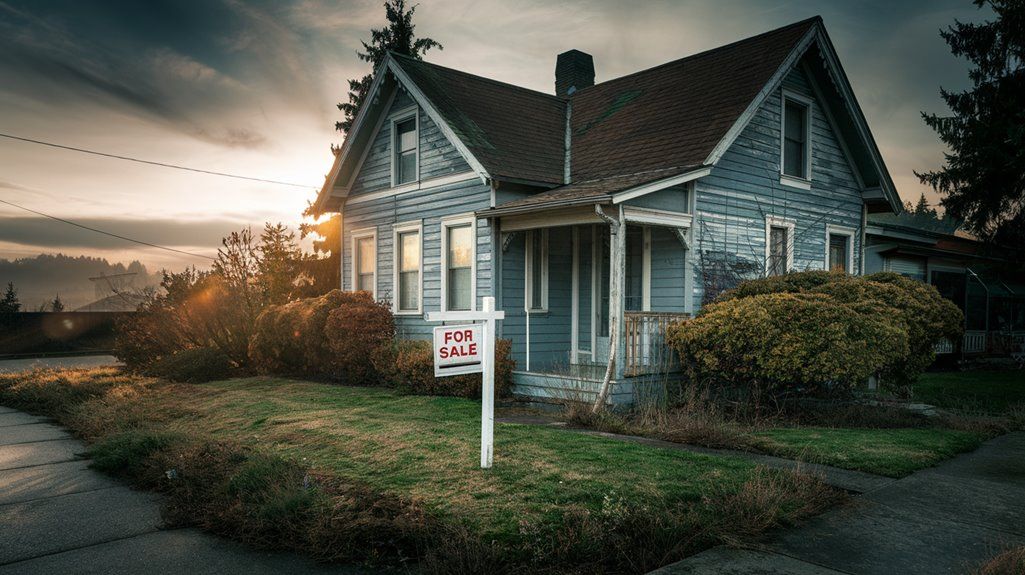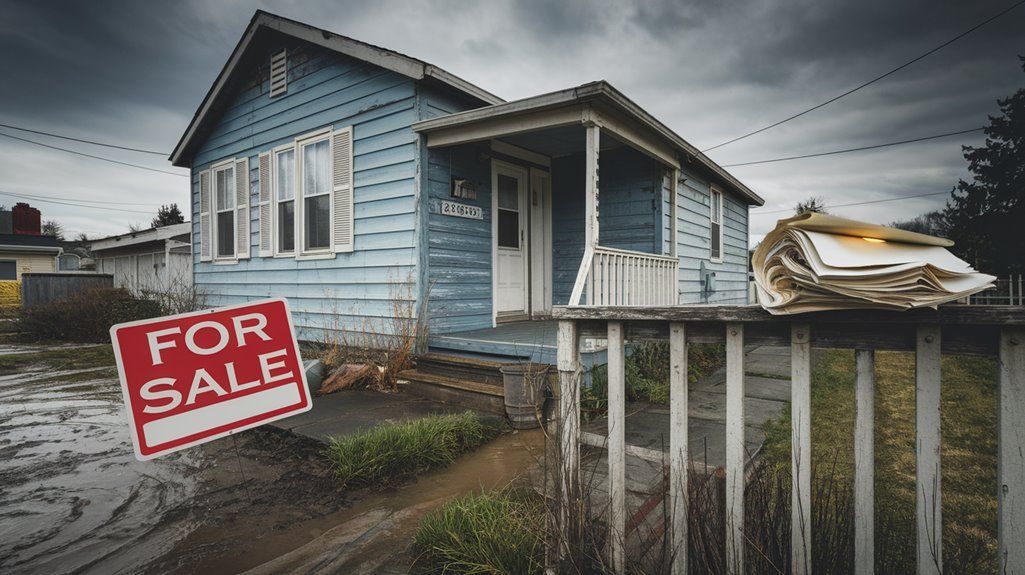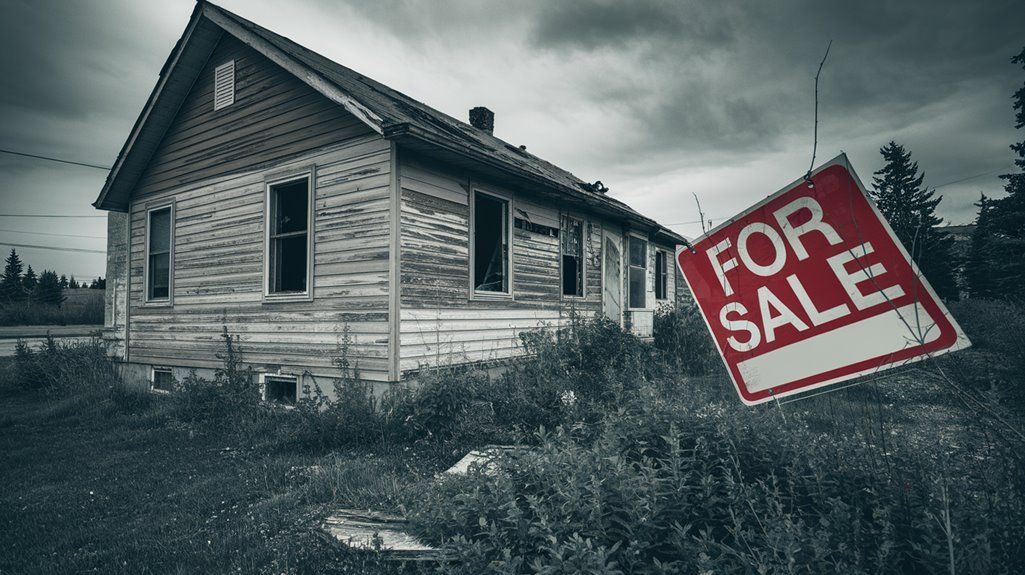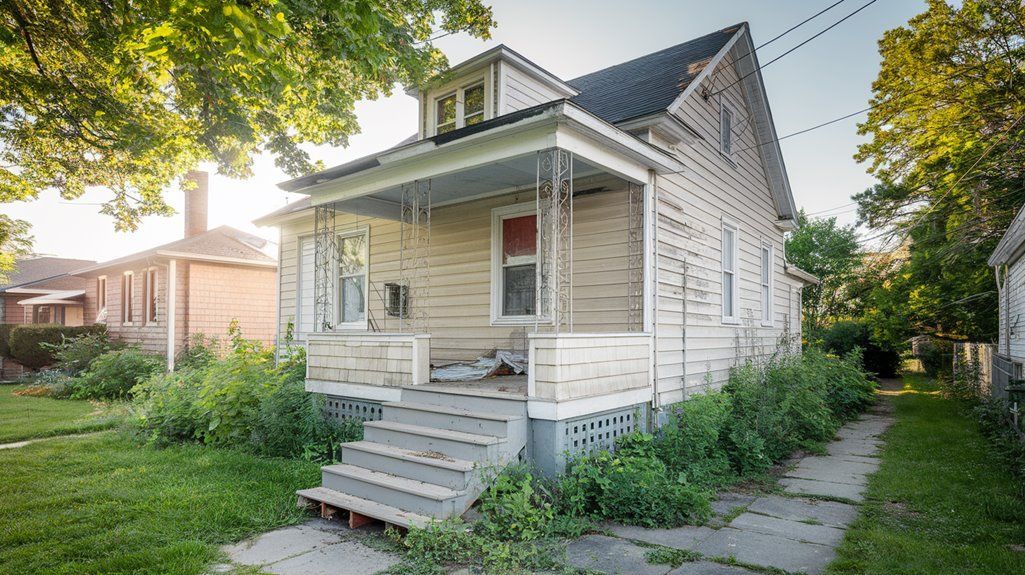How to Sell a House Fast in Colorado With Foreclosure Risk in Washington

Living in Colorado with a foreclosure risk in Washington feels like a storm brewing far away but closing in. This threat can disrupt your peace, as the legal mess and financial strain grow heavier each day. You might worry about losing your property and damaging your credit.
The fear of foreclosure can paralyze you, making every decision harder under mounting pressure. Delays can worsen the situation, risking your financial future. Stress builds as deadlines loom, and uncertainty takes over your thoughts. But there’s hope if you act quickly with the right plan to sell your house fast.
Follow these steps to sell your Colorado house swiftly despite Washington foreclosure risks. Smart strategies can protect your finances and ease your burden. This blog will guide you through solutions to tackle foreclosure risks and sell fast.
Key Takeaways
- Explore pre-foreclosure sales in Colorado to protect credit and avoid Washington foreclosure risks.
- Consider short sales with lender approval for faster transactions despite strict rules.
- Engage cash buyers for quick sales to prevent bank takeover in Washington.
- Act urgently within Washington’s strict foreclosure timelines to negotiate or sell fast.
- Seek free counseling or legal aid to navigate Colorado sales and Washington laws
.
Understanding Foreclosure Process in Washington
The foreclosure process in Washington can be tough if you face financial struggles. It may risk losing your home. This situation often brings stress and emotional strain. Knowing the steps helps you feel more in control. If you understand the process, you can take action early.
Washington’s foreclosure laws have a historical balance between lenders and homeowners. They protect both sides after economic challenges. Most foreclosures here are non-judicial, handled outside court. If payments are missed, a notice of default arrives first.
Then, a sale notice follows if issues persist. Act fast to learn your options and stay confident. Additionally, federal law requires over 120 days delinquency before the foreclosure process can begin in Washington.
Options for Selling When Facing Foreclosure in Washington
If you’re facing foreclosure in Washington, understanding your selling options can be a game-changer. You’ve got paths like a pre-foreclosure sale, a short sale versus a traditional sale, or even a deed in lieu of foreclosure, alongside negotiating forbearance with your lender.
Let’s break down these strategies, including the tight timeline of the foreclosure process, to help you act swiftly and protect your financial future. Selling to cash home buyers can provide a quick solution to avoid foreclosure by enabling fast transactions without the need for repairs or realtor fees.
Timeline of Washington Foreclosure Process
Facing foreclosure in Washington? This timeline helps you understand the process clearly. After missing payments, expect a Notice of Default at 90 days. This notice starts the official foreclosure action. If unresolved, a Notice of Trustee’s Sale arrives within 30 days. It sets a sale date at least 90 days later. So, your home could be auctioned in 120-180 days.
Don’t delay in taking action during this period. Study timeline graphics to see each step visually. Review case studies of others in similar situations. If you act quickly, you can negotiate with lenders. You might also explore options to save your property. Time is limited, so start now!
Pre-Foreclosure Sale Opportunities
Curious about avoiding foreclosure in Washington while getting a fair deal? You have options in the pre-foreclosure stage. Acting fast can protect your credit and finances. Explore pre-foreclosure sales to sell your property early. This prevents the bank from taking over.
If you choose, partner with investors through Syndication Opportunities. Here, multiple parties combine funds to buy your home. They often offer a competitive price for it. Alternatively, try Crowdfunding Ventures for quick sales. These online platforms link you with willing buyers.
If time is short, don’t delay in seeking help. Contact trusted cash buyers like Jay Primrose Properties. They can guide you through these options swiftly. A fast, fair deal is possible with them.
Short Sale vs. Traditional Sale Options
Deciding between a short sale and a traditional sale in Washington is crucial if foreclosure threatens. A short sale means selling your home for less than owed. It could prevent foreclosure with lender approval. However, negotiations can be tough and complex. Fees might be lower for agents in short sales. Still, unexpected costs may arise during the process. Contracts in short sales have strict lender rules. They differ from simpler traditional sale agreements.
On the other hand, a traditional sale gives you more control. You might get a higher selling price too. Yet, this process often takes much longer. If time is short, foreclosure risk increases. Assess your financial situation and timeline carefully. If delays are unaffordable, a short sale might work. Act quickly to safeguard your future stability.
Deed in Lieu of Foreclosure Alternative
A deed in lieu of foreclosure is a helpful option to avoid foreclosure in Washington. It allows you to transfer property ownership to the lender to clear your debt. This choice can reduce the severe impact of foreclosure on your credit.
Here are important points to know about the process:
- Voluntary Choice: You agree to give up the property without a legal fight.
- Credit Effect: It harms your credit less than foreclosure, but still has impact.
- Lender’s Consent: The lender must approve this option before it can happen.
- Moral Aspect: Taking this step shows responsibility and might feel right.
If you’re struggling, consider this option to ease financial stress.
Working with Your Lender on Forbearance
Are you worried about foreclosure in Washington? Forbearance can help by pausing or reducing your mortgage payments temporarily. Contact your lender right away to discuss your situation. Explain your financial struggles honestly and request relief. If approved, you’ll get some time to recover.
Be prepared to share documents proving your hardship. Ask your lender about repayment options after forbearance ends. If you need more time, explore extending the forbearance period. This could give you extra breathing space to stabilize.
Stay in touch with your lender regularly. Open communication helps avoid issues and prevents foreclosure. If selling your home seems necessary, consider a quick cash sale. Trusted buyers like Jay Primrose Properties offer easy solutions.
Legal Protections and Requirements
As you navigate the foreclosure risk in Washington, you must understand the state’s foreclosure laws and your rights as a homeowner, including required notices and strict timeframes that lenders must follow. Don’t overlook the redemption period, which might give you a chance to reclaim your property, or the risk of deficiency judgments that could hold you liable for unpaid debt after a sale.
You should also consider bankruptcy as a temporary solution to halt foreclosure, but act quickly to weigh its long-term impact. Engaging with cash buyers can provide a quicker resolution by avoiding traditional financing delays during legal proceedings.
Washington Foreclosure Laws and Homeowner Rights
Understanding Washington’s foreclosure laws is vital if you risk losing your home. These laws offer protections to help you. Knowing your rights can make a big difference in tough times.
Here are key rights you should know:
- Mediation Option: You can request mediation to discuss solutions with your lender.
- Free Counseling: Homeowners can access certified counselors for helpful guidance.
- Legal Support: Legal aid is available to explain your possible choices.
- Safeguard Against Unfairness: Laws protect you from unfair lender practices.
If you act quickly, these resources could help save your home.
Required Notices and Timeframes
Lenders in Washington must follow strict rules before starting a foreclosure. They have to send you clear Disclosure Notices. These notices explain the foreclosure process and your rights as a homeowner. If you receive them, read every detail carefully. You’ll get enough time to respond or find help.
Lenders also follow specific Inspection Timeframes for property checks. They must complete assessments within set periods before acting. If you’re at risk, don’t ignore any notices or deadlines. Act quickly to explore your options. Staying informed can help protect your home.
Redemption Period Considerations
When facing foreclosure in Washington, the redemption period offers a chance to reclaim your property. This window lets you pay off debts and halt the sale. Don’t believe myths about easy solutions. Know your rights and act fast.
Here’s key info about this period:
- Time Limit: You usually have 8-12 months after the sale to redeem.
- Payment: You must pay the full debt plus extra costs to regain ownership.
- Legal Help: An attorney can guide you if laws seem confusing.
- Urgency: If you delay, you might lose your home forever.
Stay aware and take quick action to save your property.
Deficiency Judgment Risks
In Washington, a deficiency judgment can arise if a foreclosure sale doesn’t cover your full mortgage debt. Lenders may then sue you for the remaining balance, affecting your finances. If this happens, quick action is essential to protect yourself.
Be cautious of risks to co-signers, as they’re also liable for the debt. Their credit and assets could suffer too. If errors occurred in foreclosure, consider appealing the judgment as a defense. Consult a legal expert to guide you through these challenges.
Bankruptcy as a Temporary Solution
Facing foreclosure in Washington is tough, but bankruptcy can provide temporary relief. It stops foreclosure with an automatic stay. This gives you time to plan your next steps. If you qualify, it might ease your financial burden. Eligibility depends on your income and debt levels.
Here are key points about bankruptcy:
- Automatic Stay: This halts foreclosure, safeguarding your home for now.
- Eligibility Rules: Your income and debts decide if you qualify.
- Repayment Plans: Chapter 13 demands a clear plan to pay arrears.
- Debt Relief: If successful, discharge can erase some unsecured debts.
Act quickly and seek legal advice for this complex process.
Financial Implications of Different Solutions
As you navigate selling your Colorado home under foreclosure risk, you must weigh the financial outcomes of each option. Consider how solutions impact your credit, the tax consequences tied to each choice, the remaining debt after a sale, and your eligibility for future mortgages.
Let’s break down these critical factors to help you make a smart, informed decision. Understanding the net proceeds calculation can also help you estimate your actual profit after all deductions.
Credit Impact Comparison
How does foreclosure affect your credit compared to other options? It’s vital to know each choice’s impact. Understanding these effects helps you pick the best path. If you act wisely, you can limit credit damage.
Here’s a simple breakdown of credit impacts:
- Foreclosure: It slashes your score by 100-160 points. The mark stays for 7 years.
- Short Sale: This reduces your score by 50-100 points. Recovery takes just 2-3 years.
- Deed-in-Lieu: Expect a drop of 50-100 points. It’s similar to a short sale.
- Cash Sale: If done before default, it avoids damage. Your score stays safe.
Act quickly with a reliable buyer like Jay Primrose Properties. This can protect your credit.
Tax Consequences of Various Options
Deciding on a house at risk of foreclosure in Colorado means knowing the tax effects. Selling your home may bring Capital Gains taxes if you make a profit. This depends on ownership time and if it’s your main home. Short-term gains face taxes at your regular income rate. Long-term gains get lower rates based on your Tax Brackets.
If you choose a short sale or foreclosure, forgiven debt might count as taxable income. This could push you into higher Tax Brackets. Always consider these financial impacts before deciding. Consulting a tax professional helps navigate Capital Gains rules. They can also assist in reducing your tax liabilities. Make wise choices to safeguard your financial future.
Calculating Remaining Debt After Sale
Understanding your debt after selling a Colorado home at foreclosure risk is vital. This helps you avoid financial surprises. You can take control by calculating your situation accurately.
Here’s the simple breakdown:
- Find Total Debt: Add your mortgage balance with any liens or fees on the property.
- Estimate Sale Money: Subtract closing costs from the agreed sale price for net proceeds.
- Calculate Leftover Debt: Deduct sale proceeds from total debt to know what’s still owed.
- Check Surplus or Deficit: If a positive amount remains, you have extra cash; if negative, debt persists.
Act with confidence using this clear information.
Future Mortgage Eligibility Concerns
Selling a house under foreclosure risk in Colorado can affect your future mortgage eligibility. A foreclosure or short sale harms your credit score. This damage often delays traditional mortgage approvals. Lenders might enforce waiting periods up to seven years. If you plan ahead, options are still available.
Consider FHA loans, as they may offer shorter waiting times. Private lenders could also overlook poor credit history. Rebuild your credit by paying bills promptly every month. Reducing debt will help improve your financial standing. If you act now, securing a mortgage sooner is possible.
Communication Strategies with Lenders

When facing foreclosure risk in Colorado, you’ve got to communicate effectively with your lender to seek solutions. Start by documenting your financial hardship clearly, negotiating payment plans, and asking about lender loss mitigation programs to ease the burden.
If issues persist, don’t hesitate to follow escalation procedures to ensure your concerns are addressed promptly. Additionally, consider reaching out to reputable cash buyers who may offer a quick sale option to avoid foreclosure.
Documenting Financial Hardship
How can you prove financial hardship to your lender when facing foreclosure in Colorado? You must show clear evidence of struggles. Lenders need to see that you’re facing real challenges. If you provide solid proof, they may understand your situation.
Here’s what to include in your documentation:
- Health Documentation – Submit medical bills or notes if illness prevents payment.
- Income Verification – Provide pay stubs or tax returns if earnings have dropped.
- Bank Statements – Show savings depletion or sudden costs if they affect funds.
- Debt Records – List loans or credit balances if debts are overwhelming.
With these documents, you can demonstrate genuine hardship to your lender.
Negotiating Payment Plans
Wondering how to negotiate a payment plan with your lender in Colorado? You can avoid foreclosure by acting fast. Start by contacting your lender with a clear financial overview. Be honest about your struggles and suggest a solution. Propose flexible payments to reduce your stress. If possible, ask for installment deals for overdue amounts. Show them your plan to meet these new terms. Lenders often prefer this over foreclosure actions.
Stay proactive and keep records of every talk. If you follow through, you can protect your home. This approach helps you regain financial stability.
Lender Loss Mitigation Programs
Let’s explore lender loss mitigation programs to help avoid foreclosure in Colorado. These programs provide relief if payments are tough. Acting quickly and talking clearly with your lender is key. Knowing eligibility rules matters since they differ by lender. Application accuracy can decide your success, so be careful.
Here’s how to proceed:
- Collect Documents: Keep income proof and hardship letters prepared.
- Explore Choices: Look into loan modifications or forbearance options.
- Stick to Timelines: Submit your application before deadlines pass.
- Keep Checking: Follow up often for any updates.
If you follow these, securing help to save your home becomes easier.
Escalation Procedures for Lender Issues
If you face lender issues in Colorado, act quickly to protect your home. Start by documenting all interactions with dates and names. This builds a strong case for resolving complaints. If the representative fails to help, ask for a supervisor. Be clear and firm about your urgent situation.
For better dispute resolution, write a formal complaint to customer service. Include key details and supporting evidence. If no solution comes, contact regulatory bodies for help. You might also seek legal advice if needed. Stay active and persistent to save your home.
Preparing Your Home for Quick Sale
When preparing your home for a quick sale in Colorado under foreclosure risk, you’ve gotta focus on the essentials like minimum preparation requirements to make it market-ready. Be upfront about your foreclosure status with potential buyers and set a competitive pricing strategy to attract urgent offers.
Finally, craft a sharp marketing approach to ensure fast results and get your property noticed immediately. Additionally, declutter and deep clean your home to enhance its appeal by removing untidy items and creating a welcoming environment for potential buyers.
Minimum Preparation Requirements
Preparing your home for a quick sale in Colorado can be simple. Even under foreclosure threats, minimal effort works. You can make your property attractive to buyers easily. Focus on key tasks to improve appeal affordably.
Here’s how to manage your efforts:
- Clear out clutter – Remove personal items to create spacious, welcoming areas.
- Clean every space – Wipe surfaces and floors for a flawless first look.
- Repair small flaws – Fix dripping taps or broken tiles to prevent concerns.
- Improve outdoor look – Trim grass and tidy paths for better curb appeal.
If you follow these steps, your home will draw buyers quickly.
Disclosure of Foreclosure Status
Selling your home under foreclosure risk in Colorado requires honesty about its status. You must tell potential buyers the truth. This builds trust and prevents legal issues down the road. If you hide the risk, problems could arise later. Be clear, but protect your personal details too.
Transparency helps attract serious buyers who grasp your urgency. It can speed up the sale process significantly. Though sharing this might feel tough emotionally, honesty is key. If you stay upfront, your credibility remains intact. A quick sale becomes more likely.
Check Colorado’s disclosure laws to stay compliant. If unsure, consult a real estate professional for advice. They can guide you on what to share. By being open, you move closer to success. A smooth sale is within reach.
Pricing Strategy in Urgent Situations
How can you price your Colorado home to sell quickly under foreclosure risk? Time is critical, so act fast. An Urgent Appraisal helps you know your home’s true market value. Rapid Negotiation can seal deals with buyers swiftly.
Here are urgent steps to set the right price:
- Check Comparables: Look at recent sales of nearby similar homes. This sets a competitive price.
- Consider Condition: Be honest about your home’s state. If repairs are needed, lower the price.
- Price for Speed: Set your price a bit below market. This attracts quick buyer offers.
- Remain Flexible: If feedback or market changes occur, be ready to adjust your price.
Take quick action to ensure a fast sale!
Marketing Approach for Fast Results
Facing foreclosure in Colorado means you need quick home sales. A fast marketing plan can save the day. Start by staging your home to attract buyers. Declutter spaces, clean thoroughly, and fix small issues. If done right, this boosts your home’s appeal instantly.
Use Social Media to reach many people fast. Share clear, high-quality photos on Facebook and Instagram. Write short, engaging posts about your home’s best features. If you post often, more buyers might notice your listing.
Try Email Campaigns to connect with interested folks directly. Send brief, strong messages about your home’s value. Target real estate agents and investors with urgent offers. If timed well, this could bring quick responses. Stay active and use these strategies to get offers soon.
Avoid Foreclosure with Jay Primrose Properties’ Fast Cash Purchase

Are you facing foreclosure on your Colorado home? Jay Primrose Properties can help with a fast cash purchase. We’re Washington’s reliable cash buyer, ready to prevent foreclosure. Our process is simple and stress-free. If you act quickly, we ensure a fair deal.
Here’s how we support you:
- Quick Cash Offer: We provide an offer in just days.
- Sell As-Is: No repairs are needed on your part.
- Fast Closing: Deals often close in under two weeks.
- Expert Guidance: Our team helps with every step.
We also cover all closing costs, ensuring you keep more of the proceeds. Contact us now if you want to secure your future!
Give us a call anytime at 253-697-0007 or fill out this quick form to get started today!
Get A Fair Cash Offer On Your House

About the author
Justin Baker
Justin Baker is the founder of Jay Primrose Properties, a leading cash home buying company based in Tacoma, WA. With a passion for real estate investing, Justin has helped numerous homeowners in the Pacific Northwest region sell their homes quickly and hassle-free. Justin believes that buying and selling real estate should be a seamless process and works tirelessly to ensure that his clients have a stress-free experience. With a deep understanding of the local real estate market and a commitment to exceptional customer service, Justin has established himself as a trusted and reliable cash home buyer in Tacoma and the surrounding areas.

